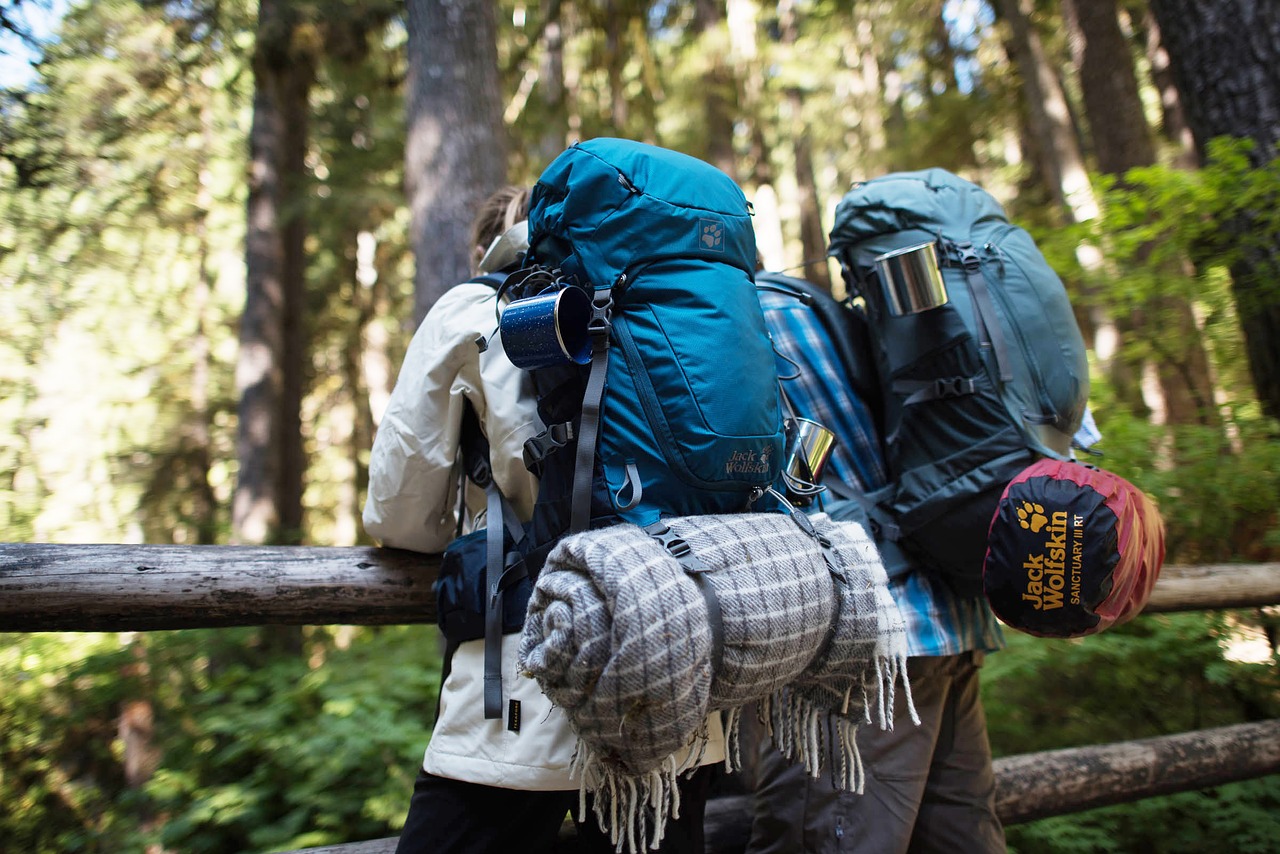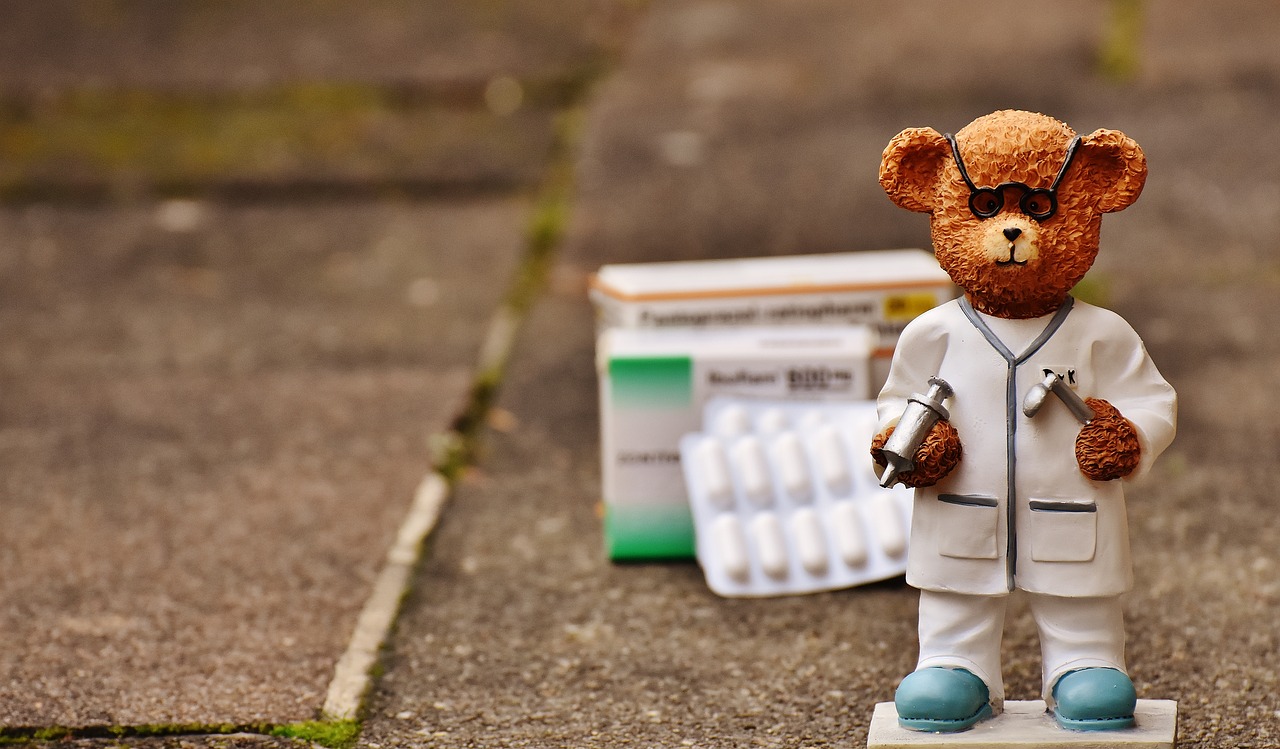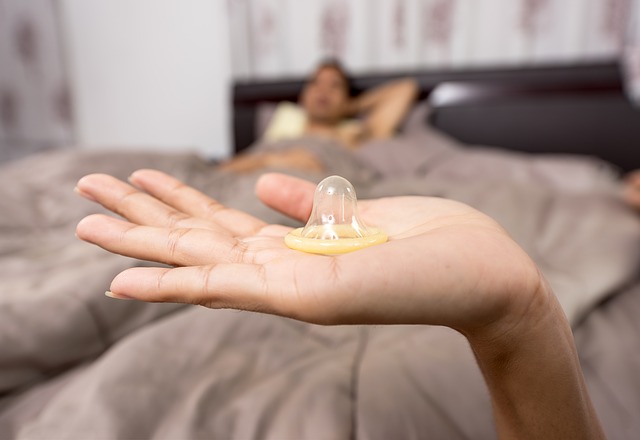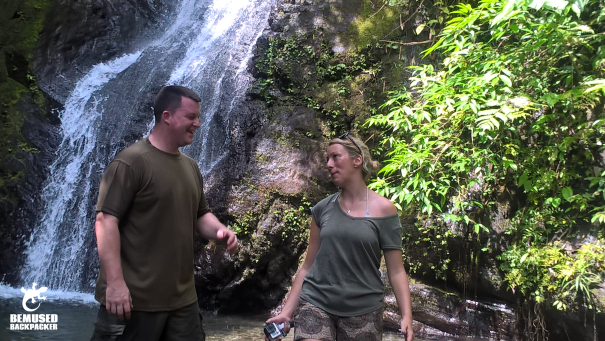Today’s Lesson From Jean is all about Taking Care of Down There When You’re Travelling. That’s right ladies and gents we’re talking all things STI, sex and sexual safety whilst you’re off travelling the world. Warning the following content is hilarious, factual and does contain some unique terms which may offend some individuals. If you’re shy or don’t want to know how to take care of down there then don’t read on.
What some people don’t know is that many moons ago I packed my bags to the fullest 20kg limit (poorly and terribly embarrassingly so) boarded a plane and magically got myself from Melbourne to Guyana. The getting here bit isn’t important. Why was I in Guyana? Because I believe that everyone has the right to sexual safety and in my mind knowledge is power. Teach a woman educate a village kinda stuff.
So I went half way across the globe to live in the jungle and teach HIV/AIDS prevention and education as a volunteer with Youth Challenge International. So to put it into context where we are going with the following post – sexual health is a topic very close to my heart. Not only a topic that I preach freely but also practice. If you ever travel with me you’ll know that I’m the first person in the hostel to be handing out tampons and condoms freely to those travellers in need. Despite not needing to use either of these myself I still travel prepared for the just in case moment.
So enough waffle for from me. If you’re reading here then I am going to make the bold assumption that you consent to reading the below information. I’m not medically trained past basic first aid. Instead of going to Dr Google I went straight to a man who is medically trained and isn’t afraid to talk about sex, STI’s and the joy of travelling. The following information is brought to you by our wonderful friend Mike Huxley of The Bemused Backpacker.
Taking Care of Down There When You’re Travelling
Sex and travel, as inevitable as a tout on Khao San Road trying to entice you into a ping pong show. And I’m not just talking about a happy ending handjob either (although no judgements from me if that is what you are into).
With the intoxicating feeling of freedom, the backdrop of paradisiacal tropical islands and being surrounded by sexy locals and backpackers alike (not to mention those damn whisky buckets), travellers will at some point on their grand adventure start bumping uglies with each other.
Not that there is anything wrong with this. Sex is generally a good thing, in fact it is an awesome thing, and backpackers tend to be some of the most downright awesome, sexiest people you will ever meet, so why not have some fun while you can? Just make sure you find somewhere discreet. No one wants to see your pasty arse bouncing up and down in a shared dorm.
But it isn’t all sweaty bodies and good times, you have to watch out for your health too. What happens in a tropical paradise doesn’t always stay in that tropical paradise when you end up carrying some sexually transmitted lurgy with you. Sexually transmitted infections in travellers are on the rise every single year so if you do have sex on your travels then at the very least protect yourself!
If you are having sex regularly then get screened regularly. Both before you leave and when you return from your travels, and if you are really going for the gold medal in the sexual Olympics it may not hurt to get checked out at a local clinic once in a while too.
And of course there is always the salient advice to always use a condom! Being drunk out of your skull is no excuse and I don’t care how hot they are or how horny you are, ‘just this once’ won’t fly either!
You should always use a condom even if you are on the pill too. The pill is an extremely popular form of contraception but it will never protect you from STI’s, and there are many common facts of travelling such as bouts of diarrhoea or taking antimalarials such as doxycycline that can make the pill less effective.
So just to give you a heads up on what you need to know before you go, and what you may need to do if you do end up catching anything, here is a list of the most common STIs travellers end up limping into the clinic with at some point.

Chlamydia.
This is a nasty disease that is passed via unprotected sex. It can be symptomless for years – especially in women – and you can pass it from partner to partner without even realising you have it, and it can cause pain when passing urine and scrotal tenderness in men and lead to infertility in women as it can block the fallopian tubes.
How is it treated?
The only treatment is antibiotics. You will need to get screened, tested and head to a clinic to get the right medication prescribed (that box of broad spectrum antibiotics you stuffed in your first aid pack just in case won’t cut it).
Gonorrhoea.
Gonnorhoea is passed through any form of unprotected sex, vaginal, oral or anal. The symptoms are generally pain when passing urine and a creamy coloured discharge (no, not that one), if left untreated it can lead to severe abdo pains and even infertility.
How is it treated?
The only treatment is antibiotics. You will need to get screened, tested and head to a clinic. You will also need to tell any of your previous partners that they may be infected too.

Genital warts.
These are small, fleshy bumps or warts that can appear on your genitals or around your anus, and are caused by skin to skin contact. Basically if anything is infected, if it touches your skin you can be infected too.
How is it treated?
There are several creams available to treat genital warts, or in some cases cryotherapy (freezing the warts) is needed.
Gential Herpes.
This is a really common virus that leads to painful blisters on the genitals. It is considered a long term condition because it can lie dormant in your body and reactivate a number of times. It can be passed through any form of unprotected sex and is highly contagious, especially given that quite often many people aren’t even aware they have it because it can be symptomless for a long time.
How is it treated?
There is no real cure for genital herpes. The virus will clear eventually on its own, but you will need to take a course of antiviral tablets to suppress the infection and ease the symptoms, and you must use a condom to stop the spread of it if you continue to be sexually active.
Hepatitis B.
Hepatitis B is a liver infection that if left untreated can cause serious long term health problems. It is not strictly just an STI as it can be passed by the sharing of any bodily fluids, including sharing needles or toothbrushes, but unprotected sex is a high risk too. Symptoms are usually vague, nausea, lack of appetite, joint pain, but can lead to serious liver problems and can even be fatal.
How is it treated?
The best protection is getting vaccinated before you travel. Condoms alone are not enough.
Trichomoniasis.
Trichomoniasis is an STI passed through unprotected sex, and is often symptomless. If you do develop symptoms such as a tick, discoloured vaginal discharge, soreness or swelling in women, or pain during urination or ejaculation and swelling around the head or foreskin of the penis in men, then these can take up to a month to appear.
How is it treated?
The only treatment is antibiotics. You will need to get screened, tested and head to a clinic. You will also need to tell any of your previous partners that they may be infected too.
Bacterial Vaginosis.
This is an STI caused mainly by unprotected sex, and not like many believe through poor hygiene. It causes an increase of discharge through the vagina and is not usually serious. It can coincide with other infections too.
How is it treated?
The only treatment is antibiotics and all vaginal soaps and disinfectants designed to increase flora should be avoided as they are not really effective.

Pubic Lice.
This is a particularly lovely infection caused by having sex or being intimate with someone who is infected with the crab louse, and yes this does include just that little naked cuddle too. Full sex isn’t necessary and condoms are not a barrier. They are horrible little creatures that latch on to the pubic hair and cause a lot of irritation, inflammation, redness, and scratching.
How is it treated?
You will need to get an insecticidal lotion or cream that you can get either on prescription or from a pharmacist, and everyone you have been in intimate or close contact with should be treated too.
Syphillis.
Syphillis is a bacterial infection that can cause highly infectious sores around your genitals or mouth and is caused by skin to skin contact with an infected sore, usually through having unprotected vaginal, oral or anal sex. Sometimes a rash can occur, particularly on the hands or feet, and if left untreated can lead to serious long term problems. Condoms are not 100% effective but they can significantly reduce your risk.
How is it treated?
Like many STI’s it will not go away on its own and will need to be treated with an injection or course of antibiotics.
HIV.
The big one. This is most commonly passed through unprotected sex, although there are other ways of catching it too such as sharing needles. The HIV virus basically attacks and weakens the immune system to the extent that it cannot fight off any infection.
How is it treated?
There is no cure for HIV, and although the treatments to allow people to live long and healthy lives with the virus are now very effective, this fact alone should make you always wear a condom.


So there you have it ladies and gents a brief run down on common STI’s that travellers take along with them. Mike and I really can’t stress enough how important it is to take care of down there.
Key notes to take away- Always wear a condom. Don’t be afraid to seek medical help, even if it’s just for your own piece of mind.
If you’ve got any further questions on travelling health issues, maybe you’d like to know more about travel vaccinations feel free to hit Mike up over at Bemused Backpacker
26 Comments
Submit a Comment

Mike Huxley
Bemused Backpacker
Mike is a charge nurse by vocation with an interest in emergency nursing and travel medicine, but his real passion is travel! Ever since an epic trip to south east Asia almost fifteen years ago that absolutely changed his life. Mike has been bouncing round the world trying to see as much of it as I can on both long and short trips.
Travellers are some of the most financially savvy people you will ever meet.
Travellers are some of the most financially savvy people you will ever meet. Have you ever wondered how people afford to travel, invest & drink take away coffee?
The simplest way to explore Darwin
Darwin is the gateway to the top end of Australia. A place where you can go back in time or explore a growing city. The city has something for everyone, from sun-drenched beaches to bustling markets and vibrant nightlife.
Geelong’s best kept hidden secret – Eden Oak
Eden Oak offers travellers the chance to experience an urban oasis hidden amongst the gum trees in Geelong’s Botanic Garden












I didnt know there were so many STIs. Thankfully when you have a lifelong partner, you get rid of atleast half of those listed. Thanks for sharing such a detailed informative article.
Not at all true my dear. You can only trust you, as only you know where you have been.
You HOPE you can dismiss half of them.
Wow it sounds like Guyana was an amazing trip. These tips are great and the way you described them is more engaging than so many other articles I read.
Cudos to you for leaving Melbourne to educate on just a touchy but important subject. I hope you saw some changes as a result of your efforts. HIV is indeed the big one and it scares me a bit it is so rarely discussed. When I was younger the message was bombarded daily (remember the grim reaper ads?) to the point where you would be forgiven for never having sex again but you just don’t see it much anymore. As a Mum of two 20 something boys (men?) I am constantly telling them to be safe!
I’m too young to remember those ads on TV! But I have seen them. Thankfully or task in Guyana was to educate in preparation for rapid testing. Which seemed to work really well.
I think having an open discussion about the topic is key to spreading the word, it is frankly ridiculous that this is a taboo subject in 2017.
I agree with Pinay Flying High, I thought that this was going to be a boring lecture (pardon me please). But I was glued to it because I know how important this topic is. You are right – when you are in a foreign country and you meet other foreign travelers (even locals), you tend to lose your guard and just enjoy the moment as it is. But you cannot really let your guard down. Sexually transmitted diseases is real and it exists. This is why I applaud you for writing this post because there are still some people who find it trivial – that it won’t hit them and is something that only happens to others. Continue doing what you are doing to spread the word about how to prevent STIs from spreading.
Awww thanks 😍
This is definitely stuff everyone needs to be aware of – travelling or otherwise. Great article, Mike.
Thank you so much 🙂
These are great tips Jean. Many travellers do not pack prepared and then in the heat of the moment throw common sense out the window. A very educational piece indeed that should be shared to as many blogs and people as possible to help keep these diseases at bay. All these issues can be avoided with simple precautions.
Very interesting article, I hadn’t even heard of all of the STI’s. We need to be careful not just when we travel but at home too. I always use condom’s as you have no idea if someone has anything and always get myself checked out when I come home.
I think you are doing a great thing educating people. Sometimes bad things happen to people just because they were misinformed. And you have packaged the education in an entertaining way too!
HIV is the big one which you don’t want to get. The thing is, it’s so hard to use a con-dom when you’ve been drinking and are hot with a girl. You just have to be disciplined, at least one of you has to be anyway! It’s important to learn about all the STI’s and viruses as you can’t turn back time and when you’re away from home you definitely have more sex. That’s for us single travelers!
It’s for everyone! Using a Condom isn’t that hard ladies and gents!
Exactly, condoms aren’t gender specific and it is everyones responsibility. Like I said, I don’t care how hot they are or how horny you are, don’t be a dick and just use one!
This is a very informative post and good to spread the word 🙂
I once volunteered in Togo giving HIV prevention classes. You managed to give a funny twist to this serious topic. Great post.
Thank you 🙂
What a cool thing you did in Guyana. We need more people talking about that stuff everywhere. And this list of things you can contract should be enough to make anyone (drunk or not) insist on a condom. I can’t imagine coming back from a tropical, lovely vacation with public lice or worse — something that doesn’t go away. There are better souvenirs :).
Super fasinating stuff! But what’s your advice on oral sex? Should you do an examination before jumping in?
Always do an examination! It might not be pretty to look at but it needs to be done
Always be blunt and upfront about it and always check, and that goes for guys just as much as it does for you ladies. It may be a mood killer (depending on wether you pull out your lab coat and magnifying glass to do it) but its better than the alternative. And its a good idea to use condoms and dental dams for those one time partners you don’t know all that well too.
I thought this would be boring but I actually read through all of it! Very interesting and informative. I didn’t know that pills can be less effective with all of the cases you mentioned!
Well I’m glad that we were able to entertain you! Entertain and educate. That’s our game plan